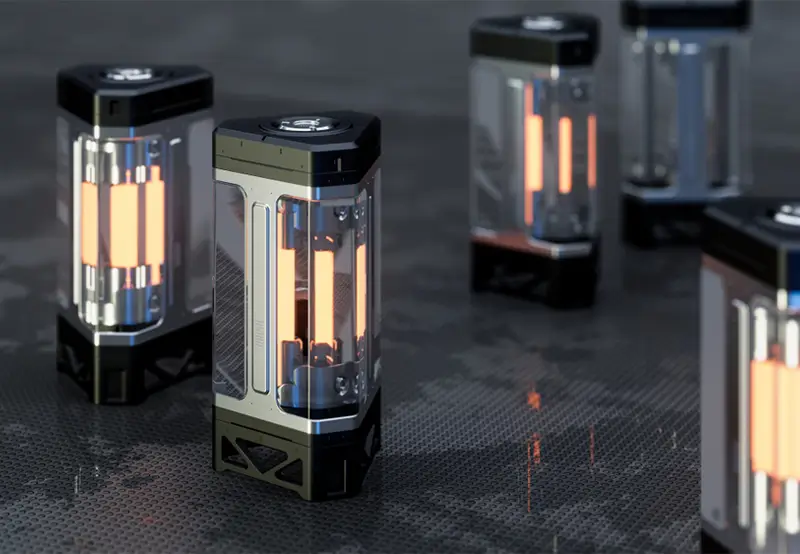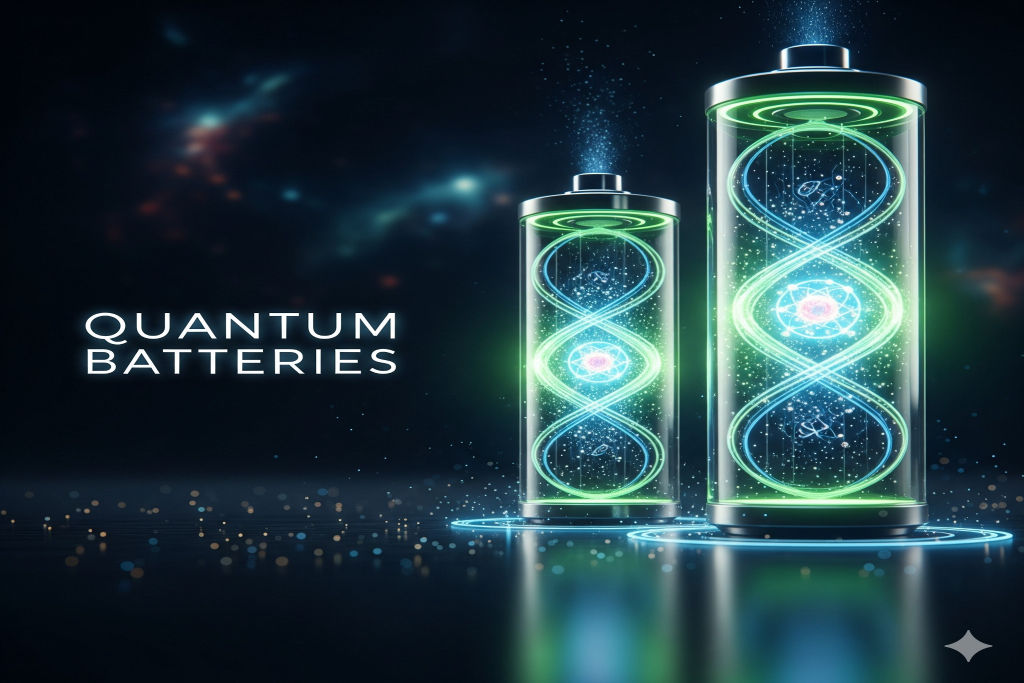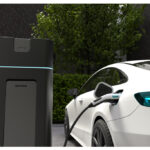Quantum Battery Explained: The Future of Energy Storage
Energy storage systems are experiencing a revolution in a world where there is an increasing shift towards sustainable technologies and alternatives based on electricity. The quantum battery is one of these inventions that have aroused a lot of interest. Although it is still in later stages of development, it is clear that this futuristic technology can help to entirely reinvent the way we maintain and expend energy. In this article, you’ll find the quantum battery explained in depth, from its scientific foundations to real-world possibilities.

What is a Quantum Battery?
To start with the fundamentals, what exactly is a quantum battery? The concept of quantum battery is a hypothetical energy storage system in simple terms, a device capable of storing energy and then delivering it with the consideration of laws of quantum mechanics. In contrast to traditional batteries, which use chemical reactions, a quantum battery harnesses the property of quantum states, namely quantum entanglement and superposition to accomplish the task.
This is the thought that energy may be recorded in the quantum states of such particles as electrons or atoms. Such particles are chargeable and dischargeable practically instantly, and combine the potential to have several orders of magnitude higher performance levels than lithium-ion technologies of today.
Quantum Battery Technology: A Breakthrough in the Making
The core of quantum battery technology lies in the manipulation of quantum systems. Scientists are investigating applications of qubits (the fundamental mode of quantum information) to electrically store energy. During entangling qubits can interact in a special way to achieve quicker energy transfer and more efficiency regarding storage.
Recently, the scientists were able to successfully simulate local scale quantum battery models, using trapped ions or superconducting circuits. These systems display some of the most interesting features such as fast charging and exceptional energy consumption. Although these demonstrations are still held within controlled environments of a laboratory setting, they validate the theory behind it and form early stages of commercialization.
Key Advantages of Quantum Batteries
The potential benefits of quantum battery technology are both fascinating and far-reaching. Here are some notable advantages:
- Sustainability: With no chemical waste and minimal environmental impact, quantum battery technology could be a greener alternative to conventional energy storage solutions.
- Ultra-Fast Charging: The charging time decreases significantly with entangled particles. In theory, a quantum battery can charge faster the more units it contains—a concept called “quantum advantage.”
- Longevity: Traditional batteries degrade over time due to chemical wear and tear. A quantum battery could sidestep this problem entirely by using non-degrading quantum states, drastically improving quantum battery life.
- Miniaturization: Since quantum systems operate at the atomic or subatomic level, quantum battery devices could be incredibly compact and lightweight, ideal for nanoscale electronics and wearable tech.
- Sustainability: With no chemical waste and minimal environmental impact, quantum battery technology could be a greener alternative to conventional energy storage solutions.
Quantum Battery Life: Longevity Without Compromise
One of the most compelling aspects of this new innovation is quantum battery life. In the traditional battery, the electrode degradation and degradation of electrolyte cause the gradual loss of capacity. But in quantum systems there are no friction-causing moving parts or physical wear.
Researchers believe that quantum battery life could theoretically be infinite, as long as the quantum coherence of the system is maintained. That is to say that gadgets that were made using these types of batteries might last years, or even decades without the battery losing its ability to perform at its best. Although this is impossible to imagine as real, already experiments are being conducted to test these theories in real life circumstances.
Applications on the Horizon
With the quantum battery explained, it becomes clear why this technology could have massive implications across industries. Let’s look at a few areas where quantum battery technology could play a transformative role:
- Consumer Electronics: Imagine phones and laptops that charge in seconds and never degrade.
- Electric Vehicles: A full EV recharge could take minutes, making charging as convenient as refueling a car with gasoline.
- Medical Devices: Pacemakers and implants powered by quantum battery tech could function indefinitely without the need for replacement surgeries.
- Space Missions: Lightweight, long-lasting quantum battery systems could power deep-space probes for decades.
Challenges and Limitations
Despite the incredible promise, quantum battery technology faces significant hurdles. Quantum systems are extremely sensitive to external disturbances like temperature and magnetic fields. Maintaining quantum coherence over long durations and in diverse environments remains one of the biggest scientific challenges.
Moreover, scaling up from single or small groups of qubits to functional battery-sized systems is a formidable engineering task. Cost is also a factor, as current quantum battery prototypes require expensive materials and specialized equipment to function.
That said, research is progressing rapidly. Institutions and startups worldwide are investing in exploring what a quantum battery is and how it can be made viable in the coming decades.
The Road Ahead
To truly grasp the potential, having the quantum battery explained offers a glimpse into a future where energy storage is no longer limited by material fatigue, slow charging, or environmental cost. As researchers continue to push the boundaries, the next generation of batteries could be driven not by chemistry, but by the strange and powerful rules of quantum mechanics.
There is still much to learn and many technical mountains to climb, but the possibilities are undeniably exciting. With continued development and funding, quantum battery technology could one day become a staple in every home, office, and vehicle.
Conclusion
So, what is a quantum battery in essence? It’s not just a futuristic power source—it’s a paradigm shift in how we think about energy. From enhancing quantum battery life to reducing environmental impact, the rise of quantum-based energy systems could radically change technology as we know it.
As this article has shown, getting the quantum battery explained means understanding both the promise and the complexity. With applications ranging from consumer gadgets to interstellar missions, it’s no wonder the scientific community is buzzing with excitement. While we may not yet have a quantum battery in our pockets, the foundation is being laid for a more efficient, sustainable, and high-powered future.
Frequently Asked Questions (FAQs)
A quantum battery is a next-generation energy storage device that uses the principles of quantum mechanics—such as superposition and entanglement—to store and release energy. Unlike conventional batteries, it doesn’t rely on chemical reactions, offering faster charging and potentially longer lifespans.
Quantum battery technology stores energy in quantum states of particles like atoms or electrons. Through quantum entanglement, these batteries can charge more efficiently and quickly. The energy transfer process happens at the subatomic level, enabling significant performance advantages over traditional batteries.
A quantum battery differs in how it stores and transfers energy. Traditional batteries rely on chemical processes, which degrade over time. Quantum batteries, on the other hand, use quantum physics to store energy, which means no chemical degradation and ultra-fast charging capabilities.
As of now, quantum battery technology is still in the research and development phase. Scientists have achieved promising results in laboratory experiments, but commercial versions are likely years away due to challenges in scalability and stability.
Theoretically, quantum battery life could be incredibly long—potentially infinite—as there are no physical materials degrading during energy storage. However, real-world performance will depend on how well quantum systems can maintain coherence over time.












